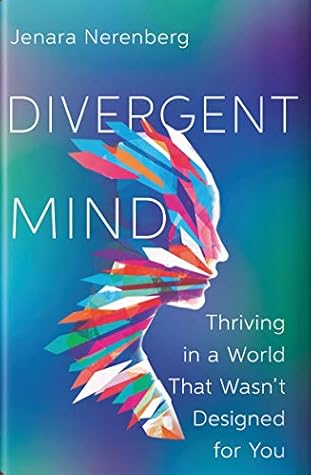More on this book
Community
Kindle Notes & Highlights
Read between
November 20, 2022 - January 9, 2023
“Is having your brain a gift, a curse, or none of the above?” he reiterates. Context is key, he says, because in one situation, one set of traits can be highly beneficial, and in another situation, those same traits can be “crippling.”
High stimulation is both exciting and confusing for people with ADHD, because they can get overwhelmed and overstimulated easily without realizing they are approaching that point. Along with sensory regulation, emotional regulation becomes difficult, which accounts for some of the sensory overload, or “meltdowns,” common in ADHD, as with the autist.
ADHD is not a deficit of attention, but rather a challenge of regulating it at will or on demand.
Second, there is the sensitivity that results from being ADHD, especially if it’s been unknown, where people become sensitive to criticism and being judged. It’s hard to do well at some times and then at other times feel like a total failure—for being late, missing an appointment, missing a deadline, getting dates or times confused, or other results of having a challenged prefrontal cortex and struggling executive functioning. There is also a sensitivity to ourselves—our own emotions, regulating those emotions, and not being so hard on ourselves. It’s no surprise, then, that it is not uncommon
...more
“I would go home mentally and emotionally exhausted and spent most of my days off just spaced out. Then on the weekends I would have two days to myself, but I was just exhausted and things became even more difficult. Time was flying, and I was accomplishing absolutely nothing.
At some point in their lives, often when adult responsibilities become too much, the amount of energy required to continue pretending, or “passing,” simply becomes too much. Depression, burnout, fatigue, and anxiety frequently surface.
But as they need more mental energy in more and more areas of life, they begin to notice that it’s harder and harder to keep up in former social situations or relationships. It becomes clear that there has been a long-standing disconnect between their actual inclinations and the ways in which they have acted out of social obligation.
It’s worth noting that the same demographic that led psychology’s history—white males—is also responsible for the growth of positive psychology, which, in combination with “mindfulness,” has grown to dominate not only the field but also popular psychology books and blogs. It has been criticized, however, for resting on individualistic and capitalist notions of happiness and well-being and taking a uniquely Western perspective on personhood and notions of thriving.
Rather than trying to rid people of anxiety, neurodiversity proponents seek to uncover the source of the anxiety as having to do with how an experience of cognitive difference in our society creates that anxiety—and feelings of insecurity, alienation, loneliness, and depression.
The challenge is that many people don’t recognize the triggers and stressors as they happen, and so they pile up and can lead to a meltdown. Lots of people have friends they can call and process with, but many autistic people don’t call up a friend to just talk, Mendes says. A therapist may be the only person who knows what’s going on; for instance, even a neurotypical spouse may not be aware of the triggers that are affecting a neurodivergent spouse.
The hardest part throughout the trials of these various jobs was the overwhelming sense of loss, confusion, loneliness, and uselessness I felt. I had zero vocabulary about neurodiversity—and no one else around me had that vocabulary either. I felt judged, criticized, and undervalued by my coworkers and by society as a whole.


